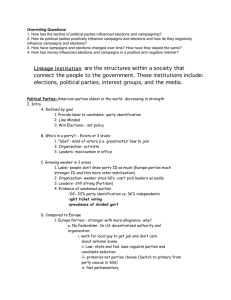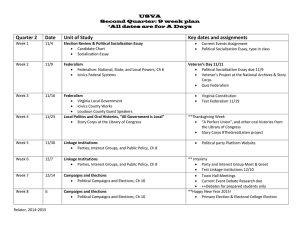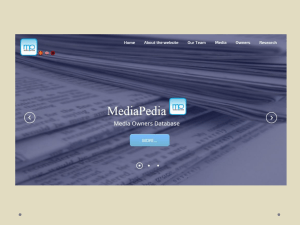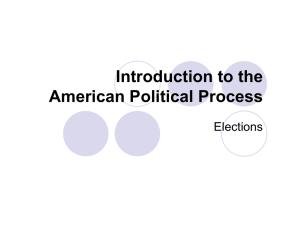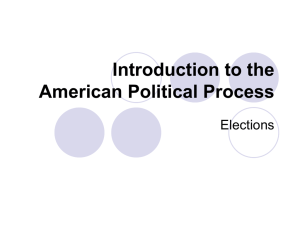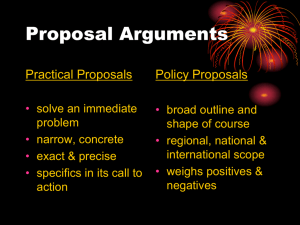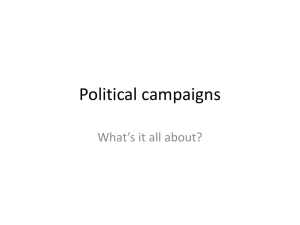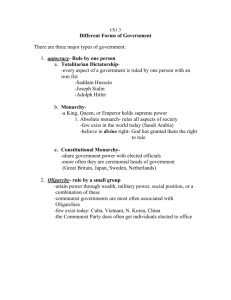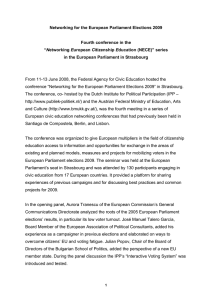The Media - University of San Diego Home Pages
advertisement
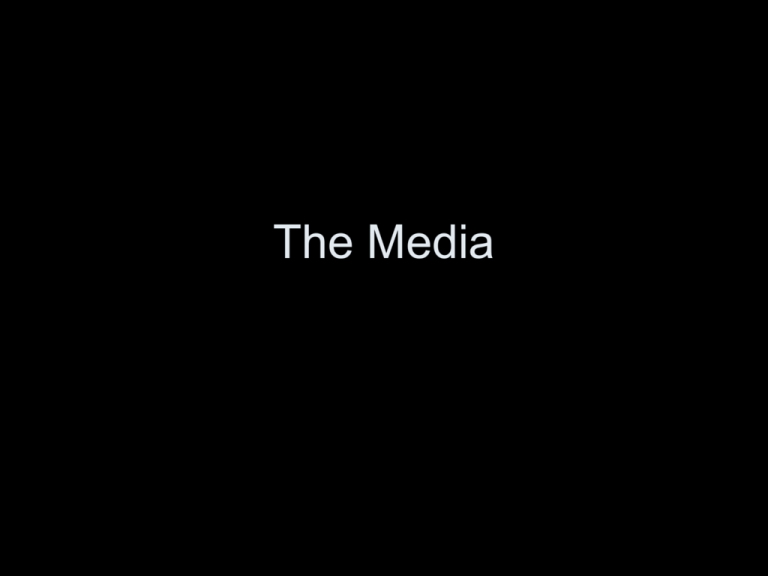
The Media Why are the media important to democratic elections? Why are the media important to elections? • Accountability requires citizens to have information • Help translate citizen preferences into policy by helping determine issue agenda • Help candidates communicate with voters What are the principles that guide reporters and publishers in their coverage of elections? Media incentives • Publishers/editors: make a profit • Reporters: write a story by deadline • Reporters: maintain sources What effects do the media have on elections? • Agendasetting and priming • Framing issues • Tone of coverage (positive/negative/neutral) Does the media just hold up a mirror? Or does it shape election outcomes? What do the media cover? • Presidential and gubernatorial elections • NOT House/local/US Senate elections What do the media cover? • • • • • Not politics Sexy politics High profile campaigns “The Horserace” “Inside baseball” Local News Coverage, 2004, NewsLab Elections Crime Local Interest Teaser/Intro/Music Sports/Weather Health Unintentional Injury Business/Economy Political/Government (nonelection) Iraq Other Advertising Foreign Policy How does media coverage affect campaigns? How do the media affect campaigns? • • • • • • • Create name recognition Create a dominant storyline about a candidate Set expectations Create bandwagon effects “Prime” the electorate with issues Evaluate candidate strategies Report the outcome How do campaigns try to affect the media? Free vs. paid media • Free media: news organizations act as intermediaries and communicate the candidate’s message in their own frame • Paid media: candidates pay to communicate their message How do campaigns try to affect the media? • Paid media—create their own message, pay to advertise it • Free media – “Message of the day” – Soundbites – Physical and visual staging – Avoiding complexity


